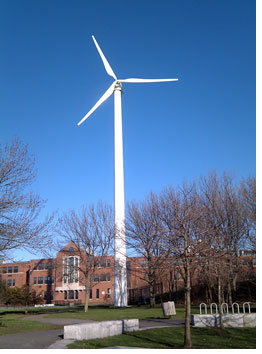Medford Receives $271K Green Grant from State
 Medford is receiving a $271,651 state grant thanks to being designated one of thirty-five “green communities” across the state.
Medford is receiving a $271,651 state grant thanks to being designated one of thirty-five “green communities” across the state.
According to information released by the Governor’s office, the grant is intended for Medford to make its schools more energy efficient and to update the municipal climate action plan.
In all, $8.1 million will be distributed amongst the state’s thirty-five “green communities.”
“These 35 cities and towns have already demonstrated outstanding leadership by qualifying to be Green Communities,” said Governor Deval Patrick. “With the grants they are receiving today, these communities can take critical next steps as our partners on the road toward a clean energy future.”
Locally, Arlington, Cambridge, Lexington, and Melrose are also receiving the grant money to make their own communities greener.
“These 35 cities and towns are the pacesetters in a growing movement to make municipal operations cleaner and greener,” said Secretary of Energy and Environmental Affairs Ian Bowles, whose office includes DOER. “These grants will enable communities from Cape Cod to the Berkshires to cut waste, save energy dollars, create local jobs, and increase their energy independence.”
The signature program of the landmark Green Communities Act of 2008, the DOER’s Green Communities Grant Program uses funding from auctions of carbon emissions permits under the Regional Greenhouse Gas Initiative to reward communities that earn Green Communities designation by meeting five clean energy benchmarks:
– Adopting local zoning bylaw or ordinance that allows “as-of-right-siting” of renewable energy projects;
– Adopting an expedited permitting process related to the as-of-right facilities;
– Establishing a municipal energy use baseline and establishing a program designed to reduce use by 20 percent within five years;
– Purchasing only fuel-efficient vehicles for municipal use, whenever such vehicles are commercially available and practicable; and
– Requiring all new residential construction over 3,000 square feet and all new commercial and industrial real estate construction to reduce lifecycle energy costs (i.e., adoption of an energy-saving building “stretch code”).
– Information from Governor Deval Patrick’s office
Pictured above: Medford’s wind turbine, located at the McGlynn School, powers 10% of the school’s electricity.